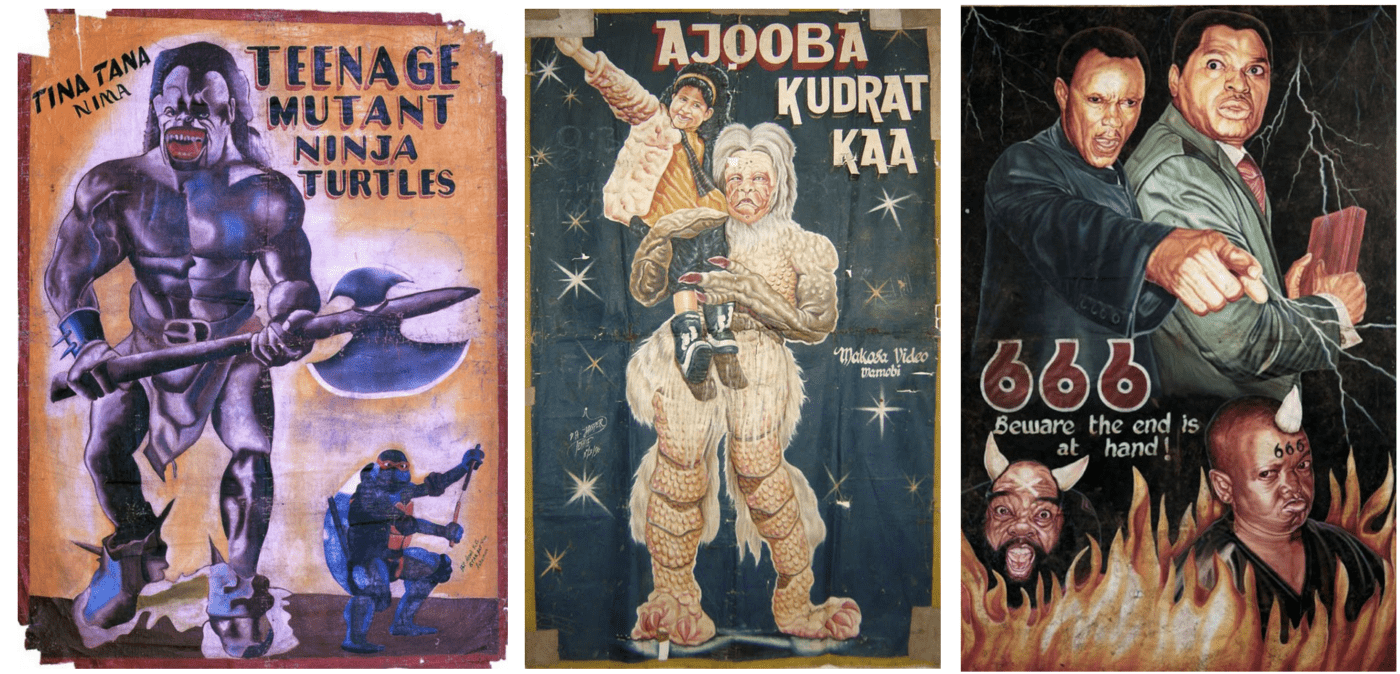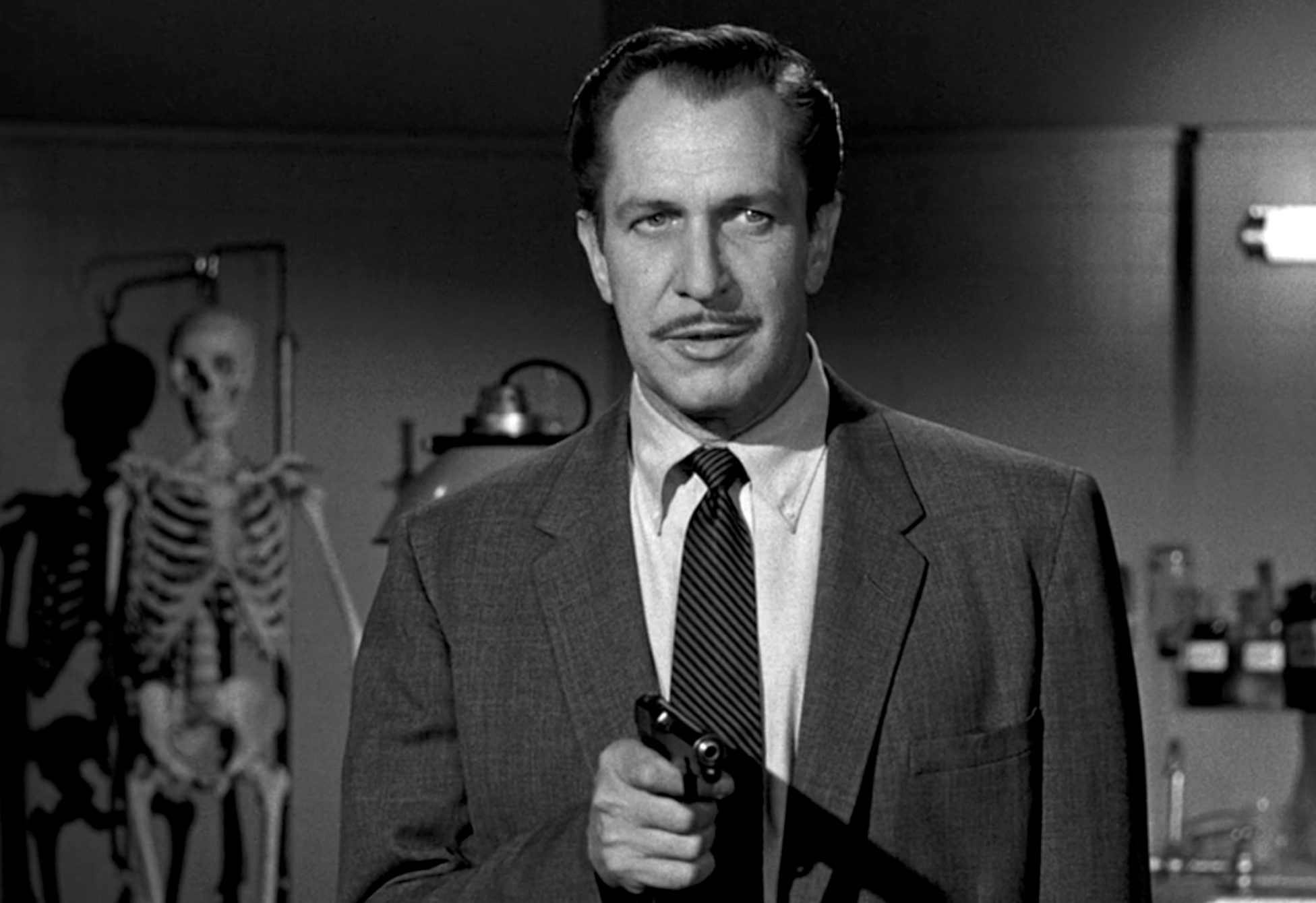
“When the missionaries came to Africa they had the Bible and we had the land. They said ‘Let us pray.’ We closed our eyes. When we opened them we had the Bible and they had the land.”― Desmond Tutu
Little did Reverend Tutu know that Christianity wasn’t through with Africa yet. The Nigerian film industry, also known as Nollywood, produces more films than any other country in the world and approximately twenty percent of those films are Christian. Nollywood makes more Christian films each year than all of Hollywood’s annual productions put together.
One of these Christian films is 666 (Beware The End Is At Hand). Directed by Ugo Ugbor in 2007. The film preaches a specific kind of colonialist, Christian gospel brought to Africa by invading missionaries.
The three-hour film is in no hurry. It casually strolls through the streets of the city looking for a plot and occasionally stumbling into something approximating a scene. It begins in Hell where Satan is busy throwing people into the flames and laughing. The bulk of Satan’s role in this film is laughing, in fact, he comes off as a pretty jolly guy. Between hardy guffaws, he manages to bellow out bits of his confusing evil plan, but it is very difficult to follow. At some point, he appears to impregnate a random woman by making her lick an oozing and infected wound on a man’s leg. I’m not willing to watch it again to figure exactly how the whole thing worked, but the devil’s evil seed gets planted and his laughter echoes through Hell while he waits for his son to be born.

The version of 666 I watched cut out what I hear was an exceedingly gruesome birth scene. Considering what the baby looked like the delivery could not have been very comfortable. (see below)
Then we ascend to the earth’s surface where we meet Pastor Lazarus. Pastor Lazarus spends his time walking the streets preaching the word of god to anyone who will listen. At least half an hour of the film is dedicated to listening to his sermons as well as the sermons of another preacher who just appears out of nowhere later in the film.
Then the screen goes black and we get an inter-title informing us that it is eight years later. Our devil child has grown into a nasty, little, bully whose eyes flash different colors when he does something evil.
It’s very difficult to make sense of the plot and the sound engineering only compounds the confusion. Ambient sound, the musical soundtrack, and the dialogue all compete for dominance by wildly swinging from loud to barely audible and back again. You have to keep your hand on the volume button through the whole movie.
As an example of the baffling nature of the plot here is a description of a small subplot. Pastor Lazarus comes across two men sitting on a stoop. Through limp hand gestures and facial expressions, it is implied that the two men are gay. A Nigerian audience might not tolerate anything more blatant. Both the government and populace of Nigeria regularly torture and murder anyone suspected of loving the same sex, thanks largely to a more recent invasion of Christian missionaries who have stepped up efforts to intensify homophobia across Africa.

The gay couple in the film excuse themselves and walk away from Pastor Lazarus. As the couple crosses the street one is run over by a car and killed. The remaining one stares at the accident without any expression of emotion. Then his eyes flash different colors. Then the dead man’s soul rises up out of the corpse and walks away. After the scene ends neither of the two men is seen again. Was the one with the flashing eyes possessed by the devil? Was one of them getting run over a punishment from God? If so why did his soul seem to rise up? What was the purpose of the scene in the first place? You just have to let go of your desire for a story arc and let the scenes pile up in an incomprehensible heap.

Pastor Lazarus finally meets up with devil-boy in an alley. They yell at each other for a while and then have a Dragon Ball Z style fight shooting energy balls at each other. When the Pastor shoots his energy ball he yells out “Holy Ghost, Fire!”
There are a few more scenes with the devil-boy and then he just disappears from the movie. Characters just come and go. After watching two hours of the film you can imagine my dismay to find out that the streaming version I was watching was in two parts and there was still another full hour to go. At the beginning of the film, the opening song says, “This is the word of god believe it or leave it.” I was sorely tempted to leave it but I was determined to watch at least one Nollywood movie from beginning to end. I had started three or four others and never made it far. This one at least had devils and energy balls, and I had already invested two hours so I soldiered on.
In the second half, Satan and his minions come back to earth again. Mostly Satan just walks around screaming his tagline over and over and over again, “I am Lucifer! King of the world! Ah ha ha ha ha! Aah ha haaaah ha, ha, ha, Ah! ha!” I didn’t have the patience to go back and count, but I would guess he repeats this line at least a dozen times.

When Satan comes to earth I think maybe Armageddon begins, it’s not clear. The devil child and Lazarus are gone and there is a new preacher and also a false preacher. We get a lot more sermons, and people in the street start disappearing. Then there’s a guy who can’t buy something in a shop, and there are some other guys in a big SUV, and people line up to receive the mark of the beast, and one of the minions tries to suck a guy’s eye out with a vacuum cleaner, and someone is kidnapped and then minions start laughing and then the movie is over. The only thing that is clear is that in the end, the Devil wins, which is a bit surprising, but I suppose it’s a cautionary tale.

Nollywood may be winning in the contest of quantity but in terms of low budget African productions, it has some serious competition in Eastern Africa. Uganda has one tiny production company who’s members collectively call themselves Wakaliwood. They are a ragtag mess of cinema rebels who exuberantly chop up first-world culture and use the resulting chaos as a playground. While Nollywood grimly mimes the ideology of its oppressor, Wakaliwood revels in the freedom afforded it by its complete DIY, no budget, independence.
Better than the Nollywood movies themselves are the hand-painted posters made to promote these films. There are also posters made to promote American films that have been bootlegged and released on DVD. Exhibitions of these paintings have been cropping up in galleries around the world. Below you will find a sampling of their bounty. Note that many of the posters for American films are made by artists who have not seen the films.




If you enjoyed this article click here for more
www.filmofileshideout.com/archives/who-killed-captain-alex-post-modern-post-colonial-hip-hop-cinema



